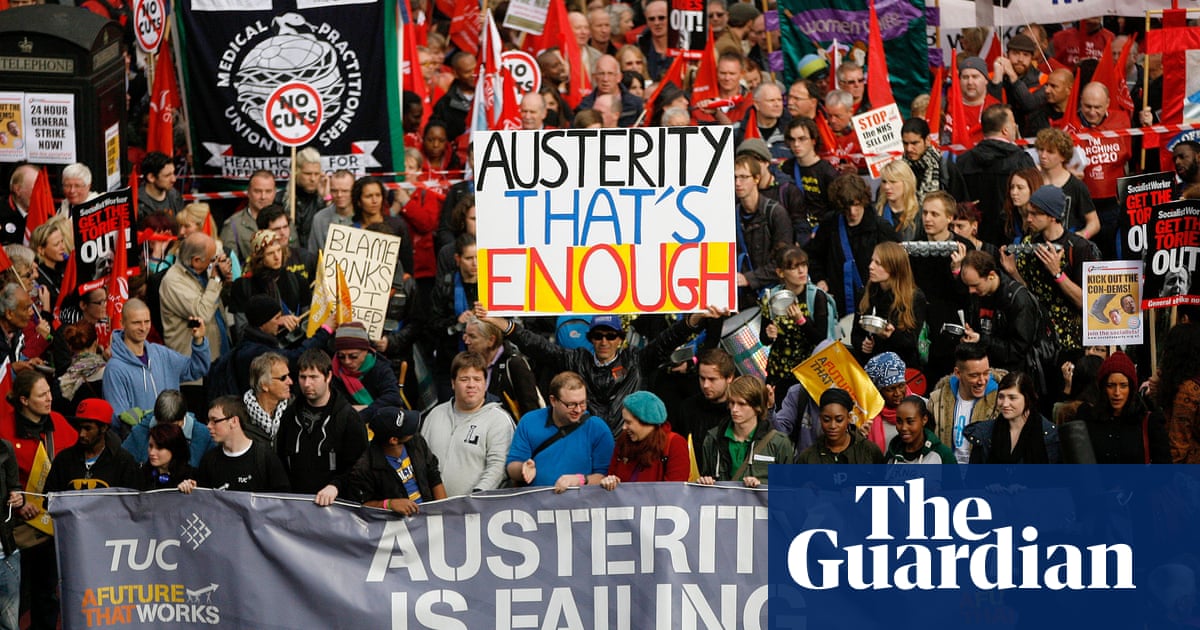
Pay packets are smaller than they were in 2008 in most local authority areas in the UK, according to analysis by the Trades Union Congress, which described the findings as a “damning indictment” of the Conservatives’ economic record.
The TUC, which includes 48 unions with more than five million members, said stagnating wages meant British workers were in the midst of the longest squeeze on wages since the Napoleonic era.
Real terms average pay, which factors in inflation, is less than it was in 2008, the year the global financial crisis struck, in nearly two-thirds (63%) of UK local authorities, the TUC said.
The union body estimates that the average UK worker would be £10,400 a year better off if real wages had grown at their pre-crisis trend – the equivalent of £200 a week.
London has the highest share of what it called “wage black spots”, with real pay below 2008 levels in nearly all of the capital’s local authorities.
The TUC blamed austerity imposed by the Conservatives, saying that wages had begun to grow after the 2008 global financial crash when David Cameron’s government took office in 2010. It said the nascent recovery slammed into reverse as the government reined in public spending, including real terms wage cuts in the public sector.
In the decade before the crash, between 1997 and 2008, real weekly wages in the UK grew on average by 1.7% each year, the TUC said. Since the banking crisis that engulfed the world in 2008, average annual growth has been –0.2%.
While the crisis affected the global economy, the TUC said that UK wages had recovered particularly slowly. It blamed successive Tory governments for “one of the worst records” for pay growth among nations in the OECD group of developed economies.
“This is a damning indictment of the Conservatives’ economic record,” said the TUC’s general secretary, Paul Nowak.
“This is the same government that’s given us the most dramatic fall in living standards on record.
“It doesn’t have to be this way. We can create a new era of decent pay growth again where families’ living standards rise rather than falling backwards,” he added.
The TUC analysed data from 340 local authorities for which it was available, finding that wages in nearly two-thirds (212) were below 2008 levels.
Even in the north-east, the region of England least affected, pay undershot 2008 in half of local authorities.
“The Tories’ failure to grow the economy – and their scorched-earth austerity policies – has decimated family budgets,” said Nowak.
“Just imagine how much better off people would be if they had an extra £10,400 in their pay packets each year – and how much more prosperous the country would be.”
A spokesperson for the Treasury said: “A global surge in inflation caused by Putin’s war in Ukraine has hit the value of wages right across the world.
“Despite these challenging international factors, since 2010, this government has made huge strides in ending low pay, with jumps in the value of the National Living Wage meaning the number of people in jobs classified as ‘low paid’ has halved. Additionally as part of our determination to end low pay, this month we increased the National Living Wage for workers aged 21 and over, putting more money in the pockets of almost 3 million workers.
“Through supporting the Bank of England and sticking to our plan, inflation is now down to 3.2% and real wages are growing. Additionally we’ve been able to cut National Insurance by a third – worth £900 a year to the average worker.”
Source: theguardian.com


















